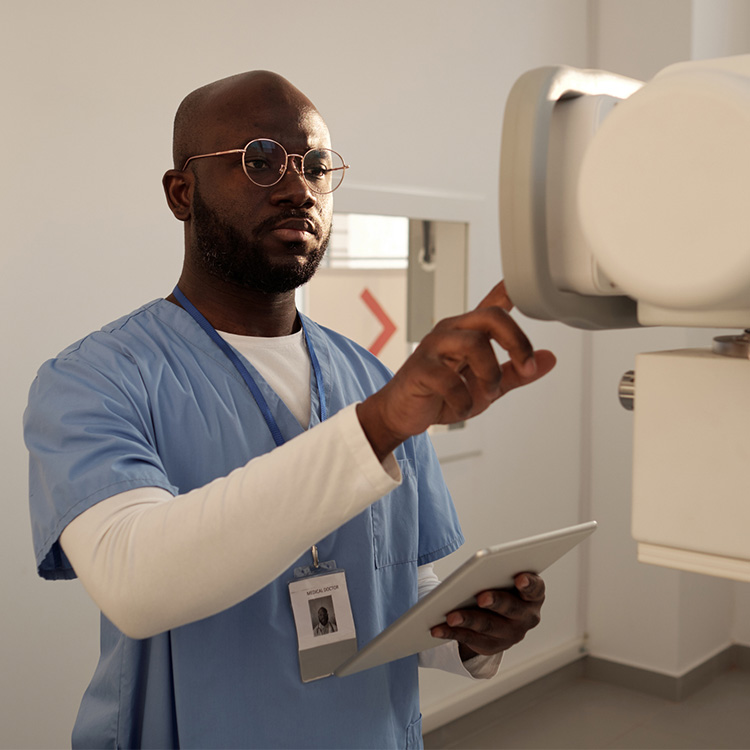AllCare is pleased to announce the opening of its newest location in Braselton, expanding access to high-quality, patient-centered healthcare for...
Sinus Infection (Sinusitis) Treatment
Effective Sinus Infection Management
If you’re experiencing persistent cold symptoms such as a headache, congestion, sore throat, and fatigue, it could indicate a sinus infection. At AllCare Primary & Immediate Care, our dedicated team is here to provide thorough and compassionate care for sinusitis. We’ll start with a detailed exam to assess your symptoms and overall health. Our goal is to quickly diagnose your condition and develop a personalized treatment plan that addresses your specific needs.

Why It’s Important to Treat Sinus Infections:
Our Approach to Sinus Infections
Sinus infections can follow a cold, flu, or allergies and may persist even after other symptoms have improved. Untreated sinusitis can lead to serious complications such as orbital cellulitis, meningitis, or a brain abscess. It’s important to seek medical attention if you notice signs of sinus infection, especially after a cold or other illness. At AllCare Primary & Immediate Care, we ensure a comprehensive approach to diagnosis and treatment, including any necessary tests and personalized care plans to prevent further issues and promote your well-being.
We’re committed to providing you with the care you need to manage and overcome your sinusitis effectively.
Our Sinus Infections Treatments in Georgia

What Causes Sinus Infections?
Your sinuses can become inflamed, swollen, and infected for many reasons, including:
- Viruses, including the common cold, and viral infections are the most common cause of sinus infections.
- Bacteria from the cold or the flu can get trapped and cause a bacterial infection.
- Allergies can irritate the sinuses, causing inflammation that can lead to sinusitis.
- Fungi can cause sinus infections, especially in people with allergies.
- Environmental irritants, like pet dander, dust, and smoke, can irritate your sinuses and cause inflammation.
- Structural problems like a deviated septum, polyps, or bone spur can make it difficult for the sinuses to drain, leading to an infection.
Are There Different Types of Sinus Infections?
While sinus infections are a general term for the congestion and sinus pain you feel, there are several types of sinus infections, including:
- Acute sinusitis occurs when bacteria begin to grow in the sinuses, with symptoms lasting four weeks or less.
- Chronic sinusitis may be caused by bacteria or a fungus. It’s diagnosed as chronic sinusitis when your sinuses are swollen for over three months or if you have more than four sinus infections in a year.
- Subacute sinusitis, like other forms of the condition, causes inflammation and irritation in the mucous membranes in your sinuses. It can be caused by irritants like fungus, dust, pet dander, and smoke.
Common Symptoms of Sinus Infections
Sinus infections share symptoms with other respiratory conditions like COVID-19. Common symptoms of sinus infection include:
- Stuffy or runny nose
- Facial pain or pressure that gets worse when you move or bend over
- Post-nasal drip
- Sore throat
- Fever
- Headache
- Loss of smell
- Cough
- Fatigue
Even though some sinus infections may go away on their own, you should seek medical care, especially if you experience any of the following:
- Severe headache or facial pain
- Symptoms reoccur or get worse after improving
- Symptoms that last more than ten days without any improvement
- Fever that lasts longer than three days
- Multiple sinus infections in a year
Please note: If you have a fever over 103 degrees, confusion, severe headache, facial rash, or vision problems like double vision, call 911 or go to the emergency room immediately.


Online Doctor Visits and Telehealth Services
Experience the convenience of telehealth appointments at AllCare Primary & Immediate Care. Our telemedicine services are designed to provide you with seamless access to healthcare without the need to leave your home. Whether you need an online doctor’s appointment for immediate or primary care, AllCare’s got you covered. With our online telehealth services currently available to individuals located in Georgia, you can connect with our experienced urgent and primary care physicians via secure video calls.
At AllCare Primary & Immediate Care, we are expanding our virtual healthcare access to all services previously offered in person. This includes:
How to Treat a Sinus Infection at AllCare Primary & Immediate Care
- Come in for Your Appointment: We offer convenient day and evening walk-in appointments for all your sinus infection needs. You can also schedule your sinus infection treatment appointment online or by contacting AllCare Primary & Immediate Care.
- Share Your Medical History: During your consultation, provide relevant medical information to help our doctors better understand your medical history, symptoms, and overall health.
- Receive Personalized Treatment: We’ll evaluate your symptoms and develop a customized treatment plan, offering options such as OTC recommendations, lifestyle changes, and primary care referrals to help you manage sinus pain and other symptoms of sinus infection.
Don’t let sinus infections interfere with your quality of life. Take the first step toward getting relief for your sinus infection by booking an appointment at AllCare Primary & Immediate Care.

Frequently Asked Questions
I get frequent headaches: Could it be a sinus infection?
Frequent headaches can indeed be a symptom of a sinus infection, but they can also result from a variety of other factors, including stress, tension, or even eye strain. Sinus infections, or sinusitis, typically cause headaches that are often accompanied by other symptoms. If you’re experiencing headaches along with congestion that worsens over a few days, a green or yellow nasal discharge, decreased sense of smell, or facial pain, these could be indicators of a sinus infection.
How do I know if my sinus infection is viral or bacterial?
Differentiating between a viral and bacterial sinus infection can be challenging without medical evaluation since both often exhibit similar symptoms. A primary care physician will be able to diagnose the type of infection based on your symptoms and may conduct tests such as a nasal swab or blood work. The main difference is that viral sinus infections generally improve within a week and usually only require over-the-counter medications to manage symptoms. In contrast, bacterial sinusitis may persist for over ten days and often necessitates antibiotics for effective treatment.
What’s the difference between a sinus infection and a cold?
A sinus infection often develops as a complication of a cold or allergies. Both conditions can lead to nasal congestion and blockages that prevent mucus from draining properly. This blockage creates an environment where bacteria or viruses can thrive, leading to a sinus infection. While a cold usually resolves on its own within a week or so, a sinus infection might require more targeted treatment if symptoms persist.
Do I need antibiotics for a sinus infection?
Antibiotics are effective only for bacterial sinus infections, not viral infections or those caused by environmental irritants. Overusing antibiotics for viral infections can lead to resistance and other complications, so it’s important to consult with a healthcare provider before using them.
Can a sinus infection cause an ear infection?
Yes, a sinus infection can indeed lead to an ear infection. The sinuses and ears are interconnected, and fluid or mucus from an infected sinus can become trapped behind the eardrum. This trapped fluid creates an environment where bacteria can grow, potentially leading to an ear infection. If you experience ear pain or hearing issues alongside sinus infection symptoms, it’s advisable to seek medical attention to address both conditions.
How Long Does a Sinus Infection Last?
The duration of a sinus infection can vary based on its type and cause:
- Acute Sinusitis: Typically lasts for about 4 weeks. It often begins after a cold and may improve with self-care measures or over-the-counter treatments.
- Subacute Sinusitis: Lasts between 4 to 12 weeks. This type of sinus infection may follow acute sinusitis and might require more intensive treatment.
- Chronic Sinusitis: Persists for 12 weeks or longer, even with treatment. It can be due to ongoing infections, structural issues, or persistent irritants.
- Recurrent Sinusitis: Involves multiple episodes of sinus infections throughout the year, with each episode lasting as described above.
schedule your sinus infection exam & treatment appointment
The Latest Healthcare News
Check out our blog to learn more from our team about the latest medical advancements, health tips, and primary care news.
Lauren Schwartz, F.N.P.-C. of AllCare Appeared on “The Weekly Check-Up” Radio Show
Lauren Schwartz, F.N.P.-C. of AllCare Primary & Immediate Care appeared as a featured guest on “The Weekly Check-Up” on December 21, 2025. The...
AllCare’s Dr. Racheal Daniels Discusses Holiday Health and Primary Care on WSB-TV’s “Daily 2”
Dr. Racheal Daniels of AllCare Primary & Immediate Care recently appeared on WSB-TV’s Daily 2 to discuss the importance of prioritizing primary...
Related Services
Our related healthcare services extend beyond immediate care to include preventive care such as routine physical exams, chronic disease management for conditions like diabetes, and specialty care referrals for more complex health issues.










